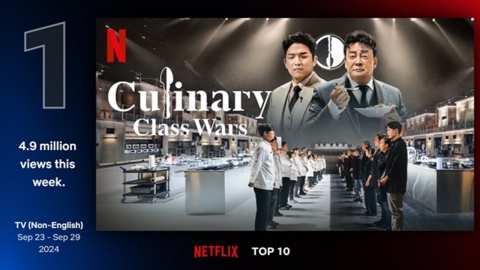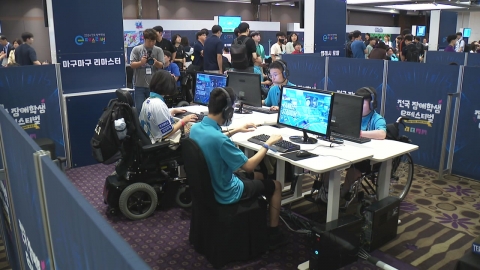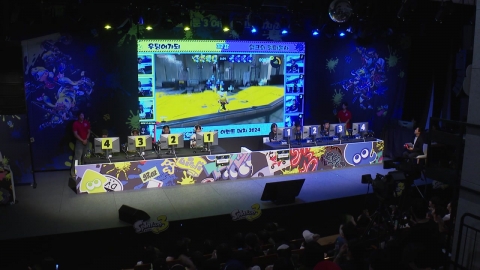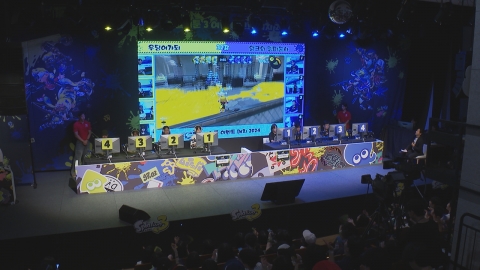■ Starring: Baek Seung-hoon, full-time researcher at the Middle East Research Institute of Hankuk University of Foreign Studies
* The text below may differ from the actual broadcast content, so please check the broadcast for more accurate information. Please specify [YTN NewsNOW] when quoting.
[Anchor]
In our view, early this morning, Iran launched a large-scale ballistic missile at Israel.
[Anchor]
As Israel foretells retaliation, concerns over expansion in the Middle East are at their peak. Let's take Baek Seung-hoon, a full-time researcher at the Middle East Research Institute at Hankuk University of Foreign Studies, to examine the situation in the Middle Welcome.
[Baek Seung Hoon]
How are you?
[Anchor]
There was a story about what Iran was doing when its allies were attacked, but they launched an air strike. How big do you think it is?
[Baek Seung Hoon]
They said it was about 200 rounds this time, but the Israeli Defense Forces said they had been attacked by 180 projectiles, including ballistic missiles, but they successfully defended them all. So, the actual victims are now said to have two Israeli citizens injured, followed by one Palestinian dead.
In a way, projectile attacks, including some 180 ballistic missiles, are not small. Because on April 11th and 12th, when Iran launched its first missile attack on the Israeli mainland for the first time ever, it was about 320. So, compared to that, the attack was carried out with about 60 or 70% of the firepower, so it is not a small scale, but as at that time, there are quite a few victims.
[Anchor]
In the meantime, there have been many analyses that Iran may not make a direct attack, but unlike this, direct airstrikes were conducted at this point. What's your background?
[Baek Seung Hoon]
You can look at it like this. The anchor just said this to everyone, but in a way, a colleague who has been with Hezbollah for more than 40 years, so Hamas, not 40 years. So in a way, the head of the forces that fought on behalf of Iran loyal to what we often call the shadow war, the proxy war. So Nasrallah and Haniyeh died.
In a way, Haniyeh died at an event inviting Iran, so there was a situation where Iran had to do something. But why now? Isn't it time to send ground troops to certain extent in southern Lebanon to destroy Hezbollah?
So, among the forces of resistance, what is Iran doing, and what do you do if you don't do anything even before Israel's dispatch of ground troops because you didn't help until the end when you asked for help? From the standpoint of Iran, even if you thought this was a trap hit by Israel, you had to pull out your sword and cut off the radish somehow.
Then why was it an air strike? I think I told you last time when I came out, but from Iran's point of view, we can't afford to send ground troops or use other options. So the only thing that can be done now is to use asymmetric power, so missiles and drones, and then asymmetric warfare, not regular forces, to use special warfare, including insurrection, so-called guerrilla warfare, and attacks including projectiles.
There was no choice but to make such an attack, so it can be analyzed that a large-scale airstrike was carried out in a way that attempted to strike Israel with about 180 projectiles.
[Anchor]
So, you explained that you had to do something, but was it expected from Israel's point of view? Or did you catch him off guard? How do I look at it?
[Baek Seung Hoon]
I didn't get caught off guard at all. Because I don't know if this is the right expression.Ma has all the candles. Because I think Iran will attack already three hours before the Biden administration. So I told Israel that I've done all the meetings of security aides. In a way, the core of the military operation is security, which I've already told you three hours ago that Iran will attack, but it wasn't a surprise attack for Israel as the U.S. took steps to add three more flying squadrons, add 2,000 more, and keep the Abraham nuclear carrier there for about a month. That's why the situation seems to have ended with two Israeli injuries and one Palestinian death.
[Anchor]
We haven't heard about the exact damage so far, but we've launched about 200 ballistic missiles, but as far as we've heard, no significant damage has occurred yet.
[Baek Seung Hoon]
In the beginning, there was this talk. Because the Iranians said that. Iran's public broadcaster says that we hit exactly 80% of our target, and some sources are airports in southern Israel, so the F-35 fleet. It's the latest flagship, and there's also a story that 20s were destroyed. But as I said, the Israeli Defense Forces immediately said that the damage was minimal, and U.S. Secretary of State Blinken also said that the U.S. and Israel worked together to successfully prevent it without much damage.
However, although the two sides are now making conflicting claims, I think the U.S. and Israel are closer to the truth because the U.S. was prepared and aware of Iran's attacks, as I said three hours ago. So as we all know, Israel is a country that had five or seven so-called missile defense systems, and doesn't it have that history of blocking 99% of the time when Iran first launched 320 projectiles on April 11 and 12 and attacked Israel?
Then I knew three hours ago, and then I was all set, and then I attacked with 180 ballistic missiles, fewer than I did on April 11. If you put those things together, isn't Iran's claim a little less credible? Of course, we have to wait and see, but I'm judging that what Israel and the United States are talking about is closer to the truth.
[Anchor]
From Iran's point of view, it has no choice but to use asymmetric power, and Israel's defense network is too solid to do so, and the rest of the offensive means are not appropriate, and economic sanctions must be considered. I don't think there are many cards I can take out right now.
[Baek Seung Hoon]
So if you look at Iran's behavior this time, it's a little bit like this. So, he sometimes plays for his own play. What happens after Iran attacks is that Iran's state-run broadcasting has been a hugely successful military operation. So we hit the target more than 90% of the time, and then what happened was that the top Iranian diplomatic officials, including Fezeshikyan, said, "The Zionist."
So without talking about Zionist, Israel, we successfully retaliated against the Israeli racists, the Zionist administration's terrorist activities. And that's a little bit of a subtle message, and what I'm saying is that if Israel doesn't react again, if it doesn't make another military provocation, we won't continue this anymore. If you look at it, I talked about it.
[Anchor]
Are you saying you don't want a war?
[Baek Seung Hoon]
It shows that he does not want to expand, and in front of it, there is now such a contradiction, but Israel has not been harmed. But we did it successfully. He said it was a successful operation, and the international community said, "Now that we've retaliated, it's Israel's turn," and threw the ball to Israel. So, as you just said, I think this act is a kind of attack that builds up their cause in the international community and builds up some justification for what they did to Hezbollah and Hamas.
[Anchor]
After that, didn't Israel come up with another answer right away? Will there be a high chance that we will retaliate again or take action?
[Baek Seung Hoon]
That's important after that. I'll retaliate. He added that we will decide how and when we will do it at the most timely time as Israel judges. So, I think the operation of the ground forces in southern Lebanon to oust Hezbollah has already begun. So I'll probably focus more on this.
Now, I think we're going to focus more on attacking the Iranian mainland again, maybe Hezbollah in southern Lebanon, or destroying military facilities, rather than attacking the Iranian mainland again.
[Anchor]
So, it's unlikely now, but out of the many possibilities, an all-out war against Iran in Israel is the worst scenario, right?
[Baek Seung Hoon]
That's the worst case scenario. If that happens, you have another group of Shiite militias, the Houthi rebels or the Kataib Hezbollah in Iraq. If Israel and Iran are really going to go all out, then Iran is going to use every card it can. It's an attack that mobilizes the IRGC regular army, Hezbollah and Hamas, as well as Shiite militias in Iraq and Syria.
It's an attack where the axis of resistance occurs. So that's the worst-case scenario, but I think the message from Iran right now is that it's a movement that wants to avoid war and the U.S. is strongly intervening right now. Because if you look at this, it's an unusual situation. Iran attacks by quickly detonating the information to the media three hours ago.
That's why the U.S. is now taking care of the Israeli issue by saying, "We had a security adviser meeting, so we passed everything." It shows that we don't have a gap. And as soon as that fell, the squadron that successfully sent the military operation was successfully blocked, sending a message to Iran and the axis of resistance.
We're here, the United States is here now. So I'm going to keep it, so I'm telling you that there's not much you can do even if you try to provoke, but I'm also telling Israel. So, we're helping you to the end, but we're also sending you a message saying, "Let's do it while keeping the line," so I've seen it positively.
So this will inevitably lead to a military operation in southern Hezbollah, a military operation to send ground troops, but this is the kind of escalation that we're concerned about, should we wait and see going to an all-out war now, an axis of resistance and an all-out war in Israel, because we're restraining it. That's what I thought.
[Anchor]
Don't you often miss an inch of war anyway? Even if we don't go to an all-out war like this, can we make mistakes and spread more in a moment?
[Baek Seung Hoon]
Of course, there's another thing. We're now carrying out military operations in the southern part of the country, and all of our peacekeepers are there. So what I'm saying right now is that Israel is a limited operation. It's called a local ride.
So the local raid, so this is not a key facility, but a key facility, and then we're going to go there and make a surprise attack, go in and attack, and in a way, we're going to attack with pinpoints.
That means that if we are stationed or there, there will be more conflicts, so there are events that we cannot predict, and we are drawn into a war spiral. Fortunately, from Israel's point of view, there are peacekeepers, so they say they will not do it because there are various collateral damage and collective damage that will occur during the military operation. So, if the military operation is as Israel has said, the risk of escalation in southern Lebanon will be significantly suppressed.
[Anchor]
Finally, let's take a look at this. In the end, protecting each other's lines will be the most important, but isn't Netanyahu the person who is most concerned? How far do you expand the air raid and how much you will stop when you achieve your goal, I think this is the key, how do you see it?
[Baek Seung Hoon]
Israel's guidelines have already been revealed. What I said is that we're going to turn southern Lebanon into a buffer zone, a buffer zone. And I've already told the Lebanese people this. The war has begun. So get out 30 miles. So 30 miles up the Israeli border. So in terms of kilometers, you can multiply it by 1.67, so it's usually 48 to 50 kilometers.
So go out behind the area. So that's what Netanyahu's military campaign is about. As I said, we can't fight the war against Hezbollah right now. Because, as I said, Hezbollah is a force in institutional politics in a way. There are 13 members of the National Assembly, and their coalition party is not the ruling party because it is not a majority party, but it is the party that occupies the largest number.
And in 2022, it was the ruling party. So if Hezbollah's war gets bigger, it's a war with the Lebanese state. So it doesn't want so-called America, it doesn't want Netanyahu. So, in my view, the military operation that they're talking about now, creating a buffer zone within 50km, and significantly weakening Hezbollah's influence in it. So based on that, Hamas succeeds in annihilating, and that's probably what Netanyahu is painting now.
[Anchor]
In the end, Iran has also begun to move, and we also need to see what form Israel will take to retaliate again. Until now, Baek Seung-hoon was a full-time researcher at the Middle East Research Institute at Hankuk University of Foreign Studies. Thank you.
※ 'Your report becomes news'
[Kakao Talk] YTN Search and Add Channel
[Phone] 02-398-8585
[Mail] social@ytn. co. kr
[Copyright holder (c) YTN Unauthorized reproduction, redistribution and use of AI data prohibited]
International
View the full list of articles- Xi Jinping Celebrates Ishiba's Inauguration... Calls for Compliance with 'One China'
- [New Square 2PM] The TV debate for the vice president...Will it be a variable in the race?
- The TV debate of the U.S. vice presidential candidate...'Clash' on Middle East/immigration issues
- Canadian Prime Minister Trudeau to stay in power...2nd Congressional Confidence Vote Wins

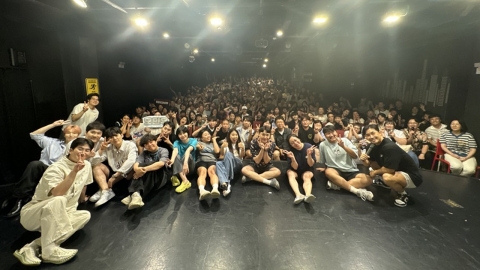
![[Focus Y] NMIX Oh Hae-won, did "look check" really become a buzzword?](https://image.ytn.co.kr/general/jpg/2024/1002/202410021443355991_h.jpg)
